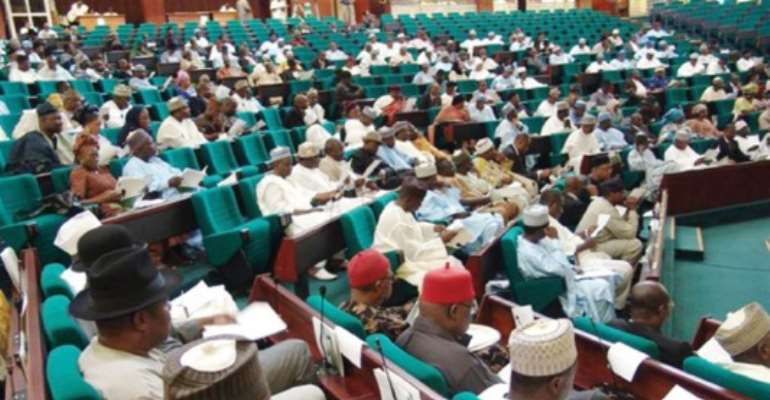House Approves Importation Of Tooth Pick, Furniture, Bottle Water, Etc

ABUJA, Dec 21, (THEWILL) - The House of Representatives today approved the federal government’s recent lift of ban on the importation of products such as toothpick, bottled water and textile. Others are mutton, leather shoes, furniture and plastic. The approval happened just as a new Deputy Minority Whip emerged in the House. He is Nelson Alapa (ANPP, Benue), whose election was announced by the Minority Leader, Hon. Mohammed Ndume.
He replaces Hon Bello Mutawalle, Zamfara State, formerly of the ANPP who recently defected to PDP. The House decision was taken after it rejected a motion by Hon. Gbenga Onigbogi (PDP, Osun) seeking to reverse the federal government's lifting of ban on 41 products in order to promote the interest of local manufacturers.
Onigbogi in his motion sought the House to mandate a joint committee on industries, customs and excise, labour, employment and productivity to undertake wide spread consultations with relevant stakeholders with a view to finding a lasting solution to this problem.
The motion did not see the light of day as majority of the legislators licked against it.
First to reject the motion was Hon. Ndudi Elumelu (PDP, Delta), who is facing criminal charges for allegedly defrauding the federal government of billions of naira through the siphoning of funds from the Rural Electrification Agency (REA). He applauded the move by the federal government in lifting the ban adding that it will contribute to revenue generation for the country.
According to him, most of the lawmakers patronise the products that were supposed to be banned but find their way into the country adding that there was no point in depriving the nation of much needed revenue.
He said, "The supporters of this motion are wearing imported materials. The duties placed on imported materials will boost revenue for Nigeria".
Elumelu added that it would also make the standard of living easier for the average Nigerian who will now be able to buy second hand cars without getting involved in deals with smugglers.
Other members who spoke against the motion emphasised that liberation of the market would strengthen economic development and boost competition.
They also argued that since Nigeria currently lacks infrastructure for manufacturing such as stable electricity and other structures, it would be safe to substitute by importing the goods.
